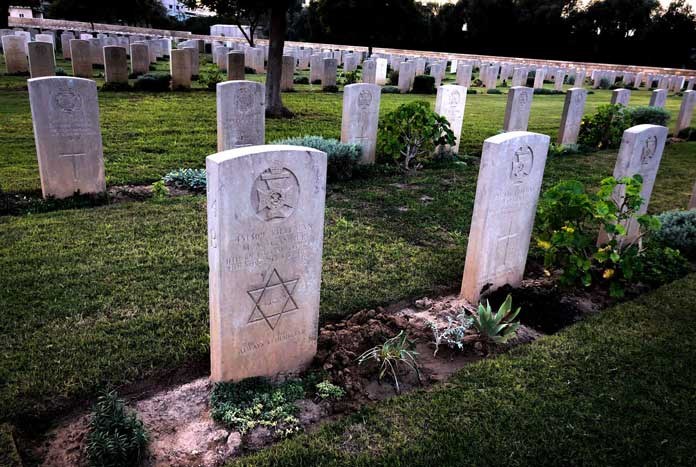It Says Palestine — Remembrance Day 2019
“The taxi pulls up outside the locked black iron gates of the British and Commonwealth War Cemetery on Saladin Street. We call the number listed for press wishing to visit, and look down an avenue of trees that lead to a monument on which is written the regiments buried here and the campaigns they took part in. Later the young people who showed us around will point to it and say: “See it says Palestine on it — this was Palestine.” Chris Rose writes about visiting the British and Commonwealth War Cemetery in Gaza.
The taxi pulls up outside the locked black iron gates of the British and Commonwealth War Cemetery on Saladin Street. We call the number listed for press wishing to visit, and look down an avenue of trees that lead to a monument on which is written the regiments buried here and the campaigns they took part in.
Later the young people who showed us around will point to it and say: “See it says Palestine on it — this was Palestine.”
The cemetery was originally positioned outside Gaza’s Old City. However that was long before the influx of refugees from the Nakba in 1948, and now the cemetery is surrounded by the urban sprawl, cheap grey concrete and dust that is synonymous with Gaza.
We drive round to the back entrance and walk into a cemetery that could have been lifted from Flanders fields. Rows and rows of neatly marked gravestones sit on a beautifully maintained lawn.
Our fight is not with Jewish people. They are just people like us. Our struggle is with the Zionists who want to take everything from us. We just want a chance to live.”
We are approached by three of the teenage boys from the family who maintain the cemetery and spend the next hour walking round it with them. “There are 3,691 graves here, 210 from the Second World War, mainly Australians, and over 3,000 from the First World War”, explains the oldest.
He shows us the graves of the UN peacekeeping forces killed between 59 and 61, then the two separate mass graves for the 12 Muslim and 25 Hindu soldiers of the Indian Army killed in WW1. They, in keeping with so Commonwealth War Cemeteries, were not awarded individual graves and were separated from the Commonwealth soldiers in death as they had been in life.

Unknown Soldiers: Jewish graves in the British and Commonwealth War Cemetery in Gaza.
We pass by countless graves for unknown soldiers and our young guide then explains that there are 4 Jewish graves in the Cemetery. We ask if these are ever vandalized or damaged. He looks so surprised:
“No, of course not. You see the lighter graves — those are new stones. They are the ones that the Israeli’s destroyed in the last 3 wars (2009, 2012 and 2014), and had to be replaced. But no one would damage these 4 graves. Our fight is not with Jewish people. They are just people like us. Our struggle is with the Zionists who want to take everything from us. We just want a chance to live.”
— — — — — — —
Please sign up to receive Amos Trust’s E-news which will keep you updated about our work in Palestine, our On Her Terms campaign for girls and young women on the streets and our Climate Justice work in Nicaragua.




